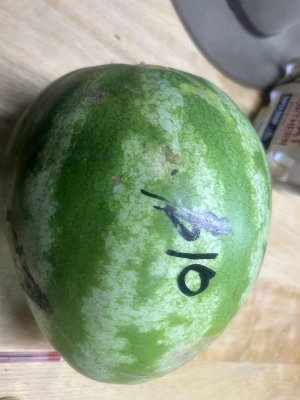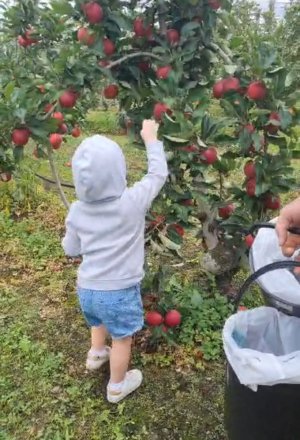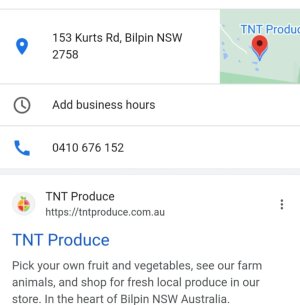Farmer gives away giant melons below cost amid supermarket price wars
By
Seia Ibanez
- Replies 21
In the sun-drenched fields of Queensland, a local farmer is selling his hefty watermelons for a price that barely covers his costs.
This desperate move is an illustration of the struggles faced by many Australian farmers who are grappling with the harsh realities of supermarket price wars.
Premier Steven Miles recently shared a poignant image of one such watermelon on social media, revealing the sad truth behind its price tag.
'A Queensland farmer is selling this 7kg watermelon by the side of the road for $10, because he can't afford to sell it for the $4 he was offered by the supermarkets,' he wrote.

'At the checkout, people are paying close to $20.'
This distressing situation is a symptom of a larger issue: the ongoing battle between local farmers and supermarket giants.
The farmer's plight has come to light as the Queensland Government launched a parliamentary inquiry into supermarket price gouging, a practice that has been squeezing farmers and inflating prices for consumers.
In a bid to address this issue, Miles held meetings with representatives from Coles, Woolworths, and ALDI. During these discussions, all three supermarket chains agreed to participate in the parliamentary inquiry into grocery pricing.
'They were all concerned about the concerns I was raising with them,' Miles told the media.
'They were good meetings.'
The terms of reference for the inquiry will be finalised in February, and the supermarkets have agreed to share more information about their pricing strategies.
‘The supermarkets have also agreed to share more information with us and as much of that information that we can share with Queenslanders, we will,’ Miles said.
'We'll put that information together in a way that is transparent for Queenslanders so they can get a better sense of why they're paying what they're paying at the supermarket.’
The Premier's actions were prompted by conversations with struggling farmers, who are finding it increasingly difficult to make ends meet.
'I spoke to them about the experiences of Queensland farmers and the differences in prices between what they're getting at the farm gate and what Queensland families are paying at the grocery store,' Miles said.
‘I look forward to receiving this (information) and we will work with the supermarkets, farmers and growers on solutions that will take pressure off household budgets.’
This issue is not unique to Queensland. Across Australia, farmers are feeling the pinch as they grapple with low prices offered by supermarkets, high production costs, and the challenges posed by climate change.
This situation led farmers to close up shop and stop supplying supermarkets altogether. You can read more about the farmers’ stories here.
The situation has become so dire that Prime Minister Anthony Albanese earlier warned supermarket giants that government intervention could be on the cards if they fail to pass lower prices onto consumers.
Former Labor Minister Craig Emerson is leading a review of the Food and Grocery Conduct Code, which governs how supermarkets interact with suppliers and customers.
Currently, major supermarkets, such as Coles, Woolworths, ALDI, and Metacash (which owns IGA), are only required to voluntarily abide by this code.
 What do you think about this issue, members? Have you noticed the price difference between the farm gate and the supermarket? Share your thoughts in the comments below.
What do you think about this issue, members? Have you noticed the price difference between the farm gate and the supermarket? Share your thoughts in the comments below.
This desperate move is an illustration of the struggles faced by many Australian farmers who are grappling with the harsh realities of supermarket price wars.
Premier Steven Miles recently shared a poignant image of one such watermelon on social media, revealing the sad truth behind its price tag.
'A Queensland farmer is selling this 7kg watermelon by the side of the road for $10, because he can't afford to sell it for the $4 he was offered by the supermarkets,' he wrote.

Premier Steven Miles shared a photo of a farmer’s watermelon on social media. Credit: @StevenJMiles / X (formerly Twitter)
'At the checkout, people are paying close to $20.'
This distressing situation is a symptom of a larger issue: the ongoing battle between local farmers and supermarket giants.
The farmer's plight has come to light as the Queensland Government launched a parliamentary inquiry into supermarket price gouging, a practice that has been squeezing farmers and inflating prices for consumers.
In a bid to address this issue, Miles held meetings with representatives from Coles, Woolworths, and ALDI. During these discussions, all three supermarket chains agreed to participate in the parliamentary inquiry into grocery pricing.
'They were all concerned about the concerns I was raising with them,' Miles told the media.
'They were good meetings.'
The terms of reference for the inquiry will be finalised in February, and the supermarkets have agreed to share more information about their pricing strategies.
‘The supermarkets have also agreed to share more information with us and as much of that information that we can share with Queenslanders, we will,’ Miles said.
'We'll put that information together in a way that is transparent for Queenslanders so they can get a better sense of why they're paying what they're paying at the supermarket.’
The Premier's actions were prompted by conversations with struggling farmers, who are finding it increasingly difficult to make ends meet.
'I spoke to them about the experiences of Queensland farmers and the differences in prices between what they're getting at the farm gate and what Queensland families are paying at the grocery store,' Miles said.
‘I look forward to receiving this (information) and we will work with the supermarkets, farmers and growers on solutions that will take pressure off household budgets.’
This issue is not unique to Queensland. Across Australia, farmers are feeling the pinch as they grapple with low prices offered by supermarkets, high production costs, and the challenges posed by climate change.
This situation led farmers to close up shop and stop supplying supermarkets altogether. You can read more about the farmers’ stories here.
The situation has become so dire that Prime Minister Anthony Albanese earlier warned supermarket giants that government intervention could be on the cards if they fail to pass lower prices onto consumers.
Former Labor Minister Craig Emerson is leading a review of the Food and Grocery Conduct Code, which governs how supermarkets interact with suppliers and customers.
Currently, major supermarkets, such as Coles, Woolworths, ALDI, and Metacash (which owns IGA), are only required to voluntarily abide by this code.
Key Takeaways
- A Queensland farmer is selling huge watermelons for $10 by the roadside because he can't afford to sell them for the low prices offered by supermarkets.
- Premier Steven Miles highlighted the issue on social media and is addressing the problem of supermarket price gouging through a parliamentary inquiry.
- Supermarket chains have agreed to appear before the inquiry and to share information to establish transparency on grocery pricing for Queenslanders.
- The situation is drawing government attention, with moves towards intervention to ensure supermarkets pass on fair prices to consumers, as well as a review of the national food and grocery code led by former Labor Minister Craig Emerson.









